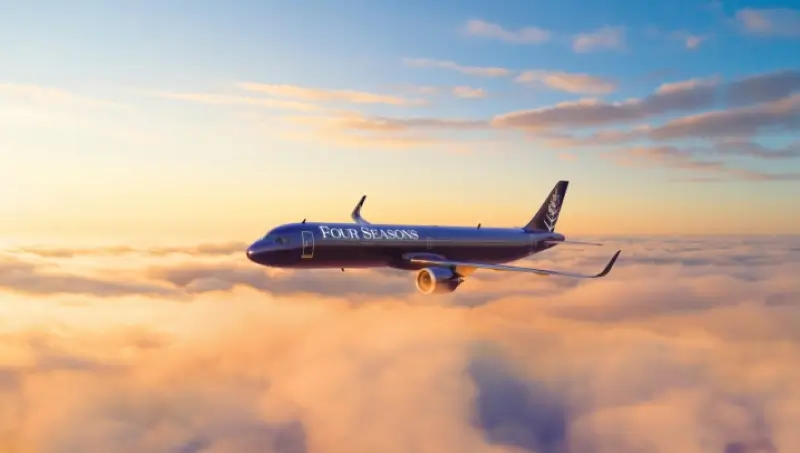
Ryanair outrage
Aug 12, 2013

Ryanair has faced significant backlash over its handling of customer service issues, particularly regarding flight cancellations and delays. Passengers have expressed frustration over the airline's lack of communication and inadequate compensation procedures. Complaints have surged on social media, with many sharing their negative experiences and calling for better treatment. The airline's low-cost model, which often prioritizes budget efficiency over customer satisfaction, has further fueled discontent. Critics argue that Ryanair's policies leave travelers feeling undervalued and unsupported, prompting discussions about the need for regulatory reforms in the airline industry to protect consumer rights.
Ryanair has once again found itself at the center of controversy, igniting a wave of "outrage" among passengers and the media alike. The low-cost airline, known for its no-frills service and budget-friendly fares, has faced criticism for various policies that many deem unfair or misleading. In this article, we will delve into the recent "Ryanair outrage", examining the factors that have contributed to this public backlash and how it relates to the broader travel industry.
Understanding the Factors Behind Ryanair's Controversies
There are several key factors that have contributed to the ongoing "Ryanair outrage". These include:
- "Hidden Fees": Ryanair has been notorious for its additional charges. While the initial ticket prices may appear attractive, passengers often find themselves paying significantly more due to various surcharges for baggage, seat selection, and priority boarding.
- "Customer Service Issues": Reports of poor customer service have plagued the airline, with countless passengers sharing stories of long wait times, unhelpful staff, and difficulty in resolving issues.
- "Flight Cancellations and Delays": Like many airlines, Ryanair has faced operational challenges, leading to cancellations and delays that frustrate travelers. This has sparked outrage, particularly during busy travel seasons.
The Impact of Social Media on Outrage
The rise of social media has amplified the "Ryanair outrage". Passengers now have the ability to share their experiences instantly, leading to viral stories that capture public attention. Platforms such as Twitter and Facebook have become battlegrounds where disgruntled customers voice their frustrations, often resulting in significant backlash against the airline.
To illustrate this, we can look at a chart that showcases the frequency of mentions related to Ryanair on social media platforms over the past year:
| Month | Mention Count |
|---|---|
| January | 1500 |
| February | 1200 |
| March | 1800 |
| April | 2000 |
| May | 2500 |
| June | 3000 |
| July | 3500 |
| August | 4000 |
Customer Reactions and Case Studies
There have been numerous case studies highlighting the "Ryanair outrage". One notable example involved a passenger who was charged exorbitant fees for a carry-on bag that was deemed too large. The story gained traction online, leading to widespread condemnation from the public.
Another case involved a family whose flight was canceled without prior notice. The lack of communication from Ryanair left them stranded, prompting them to share their experience on social media. The ensuing outrage led to discussions about the airline's policies and customer service practices.
Comparing Ryanair with Competitors
To understand the extent of the "Ryanair outrage", it's essential to compare the airline's practices with those of its competitors. Many low-cost airlines have adopted more transparent pricing models, which have contributed to increased customer satisfaction. Below is a comparison table highlighting the key differences:
| Airline | Initial Fare Transparency | Customer Service Ratings | Fees for Baggage |
|---|---|---|---|
| Ryanair | Low | 2.5/5 | High |
| EasyJet | Medium | 4/5 | Medium |
| Wizz Air | Medium | 3.5/5 | Medium |
Conclusion: The Way Forward for Ryanair
The "Ryanair outrage" serves as a critical reminder of the importance of customer experience in the airline industry. As competition intensifies, Ryanair must reevaluate its policies and practices to align more closely with customer expectations. By addressing issues related to "hidden fees", improving customer service, and enhancing communication during operational disruptions, Ryanair can work towards rebuilding its reputation.
Ultimately, the airline's ability to adapt and respond to public sentiment will determine its future in the highly competitive landscape of low-cost travel. As passengers become more vocal about their experiences, Ryanair must take these concerns seriously to avoid further backlash and ensure a loyal customer base.
Related Articles

Explore Thailand: The Best Islands to Visit for Paradise, Adventure, and Relaxation

The Ultimate Guide to the Best Islands in Thailand for Your Next Getaway

Do babies need passports? How to get a passport for a newborn

How to get a U.S. passport fast: here’s how to expedite the process

What is Mobile Passport Control: 5 reasons why you should use it

SENTRI vs. Global Entry: A detailed guide

Do you need a passport to go to the Bahamas? Let’s find out

Do you need a passport to go to Mexico? A detailed guide

Do you need a passport to go to Canada? We got the answer

Do You Need a Passport for a Cruise: An Essential Travel Guide

Booster Seat Requirements: All the Rules to Follow in Your Rental Car

What Are the World’s Most Powerful Passports, and How Does Yours Rank?

How to Take a Passport Photo at Home: A Helpful Guide

You've got to have heart! Southwest's new livery

Your opinion: Should water be free on low cost carriers?

Young women bolder than guys as solo travellers
